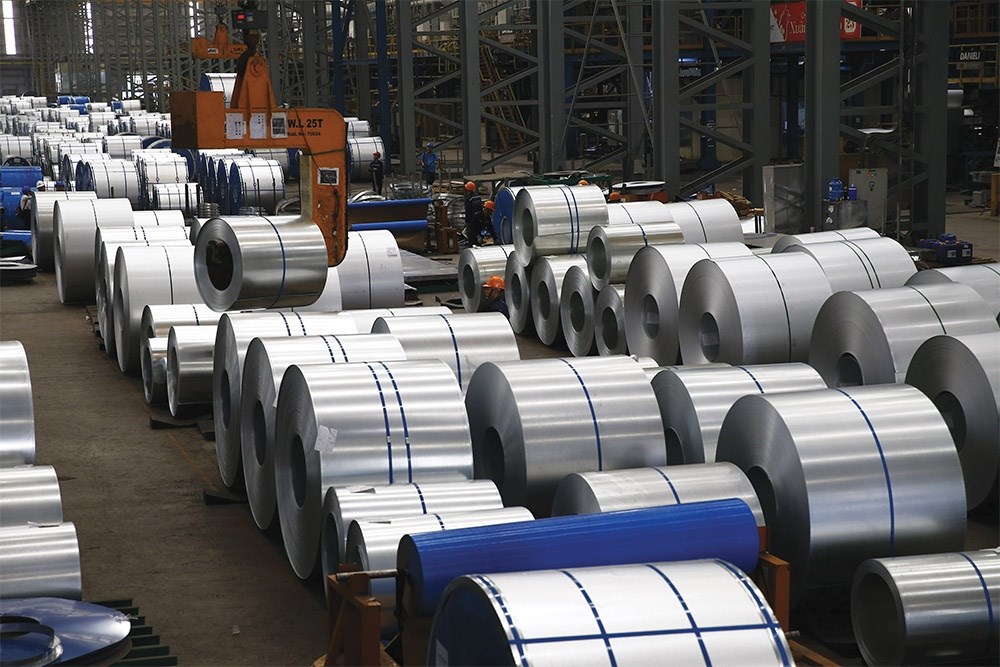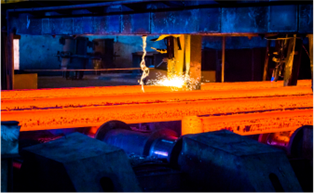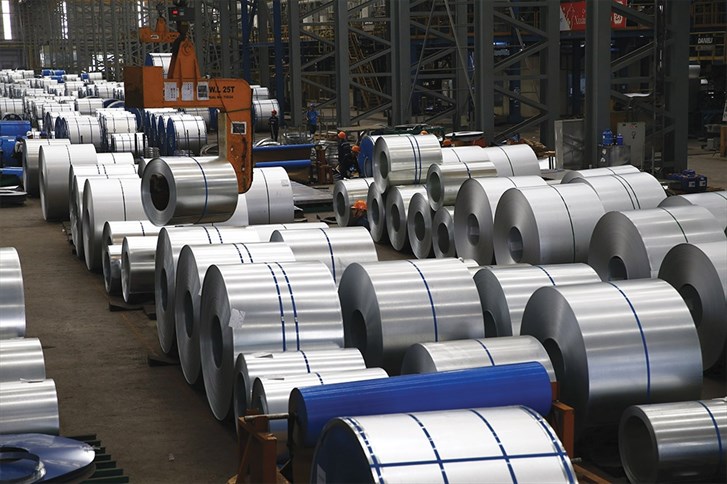Probes ongoing to protect steel firms
An increase in Chinese steel imports is causing pressure on domestic steelmakers and anti-dumping risks.
02/07/2024 15:54
According to the General Department of Vietnam Customs, in May the amount of steel imported from China more than doubled the same period last year to 1.1 million tonnes, a record high by month. China’s market also accounted for over 70 per cent of Vietnam’s steel imports in May.
 Probes ongoing to protect steel firms, photo Duc Thanh
Probes ongoing to protect steel firms, photo Duc Thanh
In the first five months, Vietnam imported more than 4.7 million tons of steel from China, an increase of 91 per cent over the same period in 2023.
Nghiem Xuan Da, chairman of the Vietnam Steel Association (VSA), said that a surge of Chinese steel flooding into Vietnam left businesses worried, especially when the domestic market was still struggling due to the real estate downturn.
“The oversupply of many domestic steel products and the increase in imported steel products will push domestic steelmakers to lose market share,” said Da.
According to economic expert Ngo Tri Long, recent years have seen a notable increase in Chinese steel exports to the global market, which has alarmed steel-producing countries and heightened trade tensions internationally. China’s export-driven strategy is having a ripple effect on global markets and economies as it establishes itself as the world’s largest steel producer.
“We need to be extremely wary of Vietnamese enterprises taking advantage of the large increase in imported steel to help them avoid their origin,” Long said.
The Ministry of Industry and Trade (MoIT) reported that by the end of May, there were 252 foreign cases investigating trade remedies with Vietnam, in which 30 per cent of cases involved steel products.
The steel products under investigation are diverse, including galvanised steel, cold-rolled stainless steel, colour-coded steel, steel pipes, steel coat hangers, and steel nails. These lawsuits mostly occur in Vietnam’s main steel exporters such as the United States, EU, and Australia.
After a long period of not using trade defence measures directly with Vietnam, in August 2023, the EU investigated to prevent the evasion of trade defence measures on stainless steel, and cold-rolled rust in Vietnam with accusations of evading trade taxes applied by Indonesia.
The VSA said that there should be a more specific investigation to determine the amount of imported goods that pose a threat to the domestic manufacturing industry, to consider imposing separate trade defence taxes on goods originating from each country.
Previously, Vietnam also applied trade remedy measures on imported steel products such as steel billets, steel coils, and steel wire imported from several countries and territories, contributing to reducing trade fraud.
“Tax policies can continue to be applied to expand subjects, combined with improving technical barriers to protect manufacturing businesses and consumers, avoiding poor quality products from spreading on the market,” Da said.
To protect local steel businesses, on June 14 the MoIT issued a decision to investigate and apply anti-dumping measures on many galvanised steel products originating from China and South Korea after receiving a request from five companies namely Hoa Sen Group, Nam Kim Steel, Ton Phuong Nam, Ton Dong A, and China Steel & Nippon Steel Vietnam.
These companies said that galvanised steel products imported from China and South Korea are being dumped into the Vietnamese market. This has caused significant damage to the domestic manufacturing industry.
According to the Trade Remedies Authority of Vietnam, the MoIT, if necessary, will impose temporary anti-dumping measures to prevent further significant harm to the domestic industry based on the findings of the preliminary investigation.
In 2017, coated steel, or galvanised steel from South Korea and China was subject to anti-dumping duties in Vietnam, with the highest duty rate being 38.3 per cent. After five years of applying anti-dumping measures, the MoIT decided to end this order.
By Nguyen Thu (vir.com.vn)








